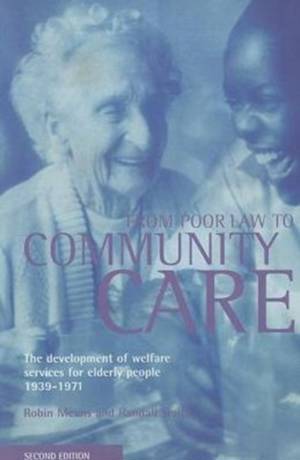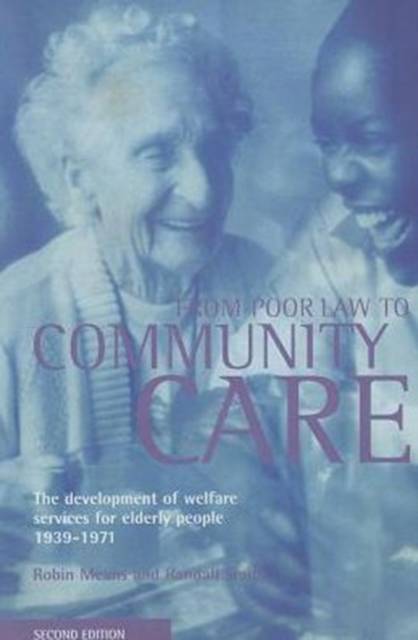
- Afhalen na 1 uur in een winkel met voorraad
- Gratis thuislevering in België vanaf € 30
- Ruim aanbod met 7 miljoen producten
- Afhalen na 1 uur in een winkel met voorraad
- Gratis thuislevering in België vanaf € 30
- Ruim aanbod met 7 miljoen producten
Zoeken
From Poor Law to Community Care
The Development of Welfare Services for Elderly People 1939-1971
Robin Means, Randall Smith
Paperback | Engels
€ 82,45
+ 164 punten
Omschrijving
Recent community care changes have raised fundamental issues about the changing role of the public, voluntary and informal sectors in the provision of social care to older people. They have also raised issues about the health and social care interface, the extent to which services should be rationed and the respective roles of residential care and care at home. From Poor Law to community care sets these debates in the context of the historical growth of welfare services from the outbreak of the Second World War through to the establishment of social services departments in 1971. Based on extensive research on primary sources, such as the Public Records Office and interviews with key actors, the book considers the changing perceptions of the needs of elderly people, the extent to which they have been a priority for resources and the possibilities for a policy which combines respect for elderly people with an avoidance of the exploitation of relatives. This is an updated second edition of The development of welfare services for elderly people, first published by Croom Helm, 1985. It is essential reading for practitioners and policy makers interested in gerontology, policy studies, community care and postgraduate students studying and training in a range of health and social care related professions.
Specificaties
Betrokkenen
- Auteur(s):
- Uitgeverij:
Inhoud
- Aantal bladzijden:
- 380
- Taal:
- Engels
Eigenschappen
- Productcode (EAN):
- 9781861340856
- Verschijningsdatum:
- 1/09/1998
- Uitvoering:
- Paperback
- Formaat:
- Trade paperback (VS)
- Afmetingen:
- 147 mm x 213 mm
- Gewicht:
- 498 g

Alleen bij Standaard Boekhandel
+ 164 punten op je klantenkaart van Standaard Boekhandel
Beoordelingen
We publiceren alleen reviews die voldoen aan de voorwaarden voor reviews. Bekijk onze voorwaarden voor reviews.











